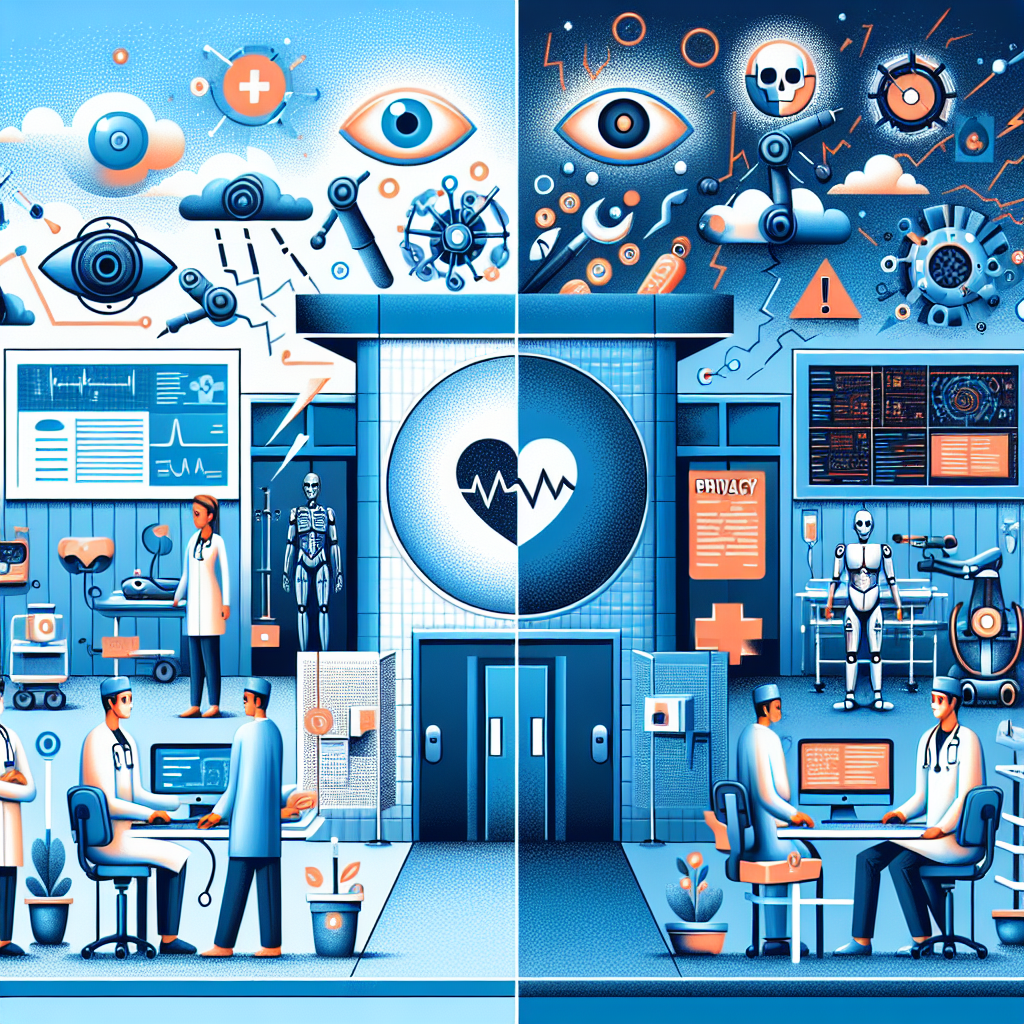In recent years, artificial intelligence (AI) has gained significant attention in the healthcare industry for its potential to revolutionize the way medical services are delivered. From improving diagnostic accuracy to streamlining administrative tasks, AI has the potential to transform the way healthcare is delivered, making it more efficient, cost-effective, and patient-centered. However, with these opportunities come risks and challenges that must be carefully navigated to ensure that AI is used responsibly and ethically in healthcare settings.
Opportunities of AI in Healthcare:
1. Improved Diagnostic Accuracy: One of the most promising applications of AI in healthcare is its ability to analyze medical images, such as X-rays and MRIs, to assist in the diagnosis of diseases. AI algorithms can quickly and accurately identify patterns and abnormalities in images that may be missed by human radiologists, leading to earlier and more accurate diagnoses.
2. Personalized Treatment Recommendations: AI can analyze large amounts of patient data, including genetic information, medical history, and lifestyle factors, to create personalized treatment plans tailored to each individual’s unique needs. This can lead to more effective treatments and better outcomes for patients.
3. Predictive Analytics: AI can analyze data from electronic health records to identify trends and patterns that may indicate the likelihood of certain health conditions developing in the future. This can help healthcare providers intervene early to prevent or manage chronic conditions more effectively.
4. Administrative Efficiency: AI can automate routine administrative tasks, such as scheduling appointments, billing, and coding, freeing up healthcare professionals to focus on patient care. This can lead to cost savings and improved efficiency in healthcare organizations.
5. Remote Monitoring: AI-powered devices and apps can monitor patients’ vital signs and symptoms remotely, allowing healthcare providers to track their progress and intervene if necessary. This can be especially useful for patients with chronic conditions who require continuous monitoring.
Risks and Challenges of AI in Healthcare:
1. Data Privacy and Security: AI algorithms rely on vast amounts of data to function effectively, raising concerns about the privacy and security of patient information. Healthcare organizations must ensure that data is protected from cyber threats and that patient consent is obtained for the use of their data in AI applications.
2. Bias and Discrimination: AI algorithms are only as good as the data they are trained on, and if that data is biased or incomplete, it can lead to discriminatory outcomes. Healthcare providers must be vigilant in ensuring that AI systems are fair and unbiased in their decision-making.
3. Lack of Transparency: AI algorithms can be complex and difficult to interpret, leading to concerns about their transparency and accountability. Healthcare providers must be able to understand how AI systems arrive at their recommendations and be able to explain them to patients and other stakeholders.
4. Regulatory Challenges: The rapid pace of AI development in healthcare has outpaced the regulatory framework, leading to uncertainty about how AI technologies should be governed and monitored. Healthcare organizations must stay abreast of evolving regulations and guidelines to ensure compliance with ethical standards.
5. Workforce Displacement: The automation of routine tasks by AI may lead to job displacement for healthcare workers who perform administrative or repetitive tasks. Healthcare organizations must consider the impact of AI on their workforce and provide training and support for employees to adapt to new roles.
FAQs:
Q: How is AI being used in healthcare today?
A: AI is being used in a variety of ways in healthcare, including improving diagnostic accuracy, personalized treatment recommendations, predictive analytics, administrative efficiency, and remote monitoring.
Q: Are there any ethical concerns about using AI in healthcare?
A: Yes, there are ethical concerns about data privacy and security, bias and discrimination, lack of transparency, regulatory challenges, and workforce displacement.
Q: How can healthcare organizations ensure that AI is used responsibly?
A: Healthcare organizations can ensure that AI is used responsibly by prioritizing patient privacy and security, addressing bias and discrimination in AI algorithms, promoting transparency and accountability, staying abreast of regulatory requirements, and supporting their workforce through the adoption of AI technologies.
In conclusion, AI has the potential to transform healthcare by improving diagnostic accuracy, personalized treatment recommendations, predictive analytics, administrative efficiency, and remote monitoring. However, these opportunities must be balanced with the risks and challenges of data privacy and security, bias and discrimination, lack of transparency, regulatory challenges, and workforce displacement. By addressing these concerns and ensuring that AI is used responsibly and ethically, healthcare organizations can harness the full potential of AI to improve patient outcomes and revolutionize the delivery of healthcare services.

